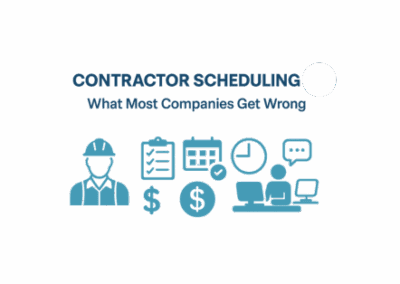When managing job satisfaction, fostering job development and raising employee retention rates, hourly workers are sometimes disregarded. However, because hourly workers make up the majority of our workforce today, your firm must take steps to ensure they are happy and healthy in their positions. This is important not only for their well-being but also for the company’s performance. With increasing job resignations since the pandemic, this blog will provide employers with tips and tricks to retain their hourly workers.
Why Focus on Hourly Workers?

Many employers make the mistake of concentrating solely on their salaried workers. However, with hourly workers accounting for such a substantial proportion of your employment pool, employers cannot afford to disregard them. An employer investing equal time and effort in an hourly employee as they do in a salaried employee may reap greater rewards. The rewards include extraordinary employee performance, higher job satisfaction, lower turnover rate, and a better capacity to attract good talent.
How to retain your hourly workers
What would you do if the bulk of your entry-level, hourly workers planned to quit within the next year? Well, half of the 1,200 young adults surveyed in entry-level occupations stated their intention, and less than a quarter were extremely satisfied with their jobs. That is costly for a business.
Depending on the function, turnover might cost up to 200% of an employee’s annual compensation. Based on voluntary turnover rates and annual replacement costs, entry-level turnover costs billions of dollars each year in businesses such as retail, customer service, and hospitality.
These factors can contribute to worsening retention and decrease your company’s ROI. So, how should you go about achieving these goals? How can you effectively reduce turnover and build a strong team of engaged hourly workers?
Here are some more significant measures you can take to get started. Let’s look at them:
FAIRLY COMPENSATE THEM
A 10% increase in base income correlates to a 1.5% rise in the likelihood that a worker will stay with the present employer.
Harvard Business review

Several strategies ensure that your hourly workers are adequately compensated for the hours they work in the workplace. First, ensure that their hourly pay represents the cost of living in your area. It can be beneficial to look at your state minimum wage and work upwards from that.
Examine the average base compensation for comparable positions in comparable companies. You should also consider overtime pay and compensation if and when they work over 40 hours a week.
According to a 2017 Harvard Business Review study, a 10% increase in base income correlates to a 1.5% rise in the likelihood that a worker will stay with the present employer. This parameter gets increasingly important as your firm grows in size. If you throw in a 1% increase in the likelihood of an employee staying at a company of 10,000 people, you’re talking about hundreds of employees yearly.
OFFER FLEXIBILITY
Hourly workers, like salaried employees, require work-life balance. According to a recent poll, 87% indicated having control over their work schedule is extremely important. 49% of such respondents were prepared to take a pay sacrifice to have that flexibility.
A flexible workplace is becoming increasingly widespread as the world shifts toward a more remote workforce. Companies recognize that if they abandon the rigid Monday-Friday, 9-5 workweek and give options such as a shorter work week with longer days, flexible hours, job sharing, tasks can be completed faster and better. Consequently, consider polling your staff to see what might work for both sides of your business.
EVALUATE THE BENEFITS
Benefits are another consideration for hourly workers. Indeed, similar to work flexibility, over half of hourly employees polled stated they would take a pay sacrifice to acquire health insurance. Your organization should also consider other perks such as paid vacation and sick time, pension plans, life insurance, and education reimbursement. It may need more effort from your human resources personnel, but it will be worthwhile in the long term to attract and retain the greatest employees for your firm.
EXAMINE YOUR WORKPLACE CULTURE

What is the culture of your company? Do you have a reputation for treating your employees well and maintaining a healthy work-life balance? A healthy corporate culture extends beyond pleasant bonuses, albeit these are appealing. Do you have faith in your employees?
This becomes increasingly important as workplaces become more flexible. Do you consistently promote from within? Employees that see opportunities for progression inside the organization are more likely to pursue employment with you.
What are working relationships like? Do the personnel appear to be pleasant and truly happy to be there? Do you conduct annual performance evaluations and give viable incentives? What about prospects for advancement?
All of these elements contribute to a company’s culture and an employee’s workplace experience. Moreover, they will go a long way toward attracting long-term talent and retaining hourly workers.
HELP THEM WITH CAREER PLANNING
Don’t let good employees leave because they feel trapped or pigeonholed at work. Employers should consider providing professional development opportunities and assisting hourly workers in determining their job and career objectives.
Consider offering continuing education benefits or paid on-site or off-site training. Consider implementing a mentoring programme in which hourly employees are paired with either higher-level or paid staff. These mentorship programmes assist employees in advancing in their jobs and professions and make them feel more connected to and a part of the organization.
INCLUDE THEM IN THE PLANNING AND DECISION-MAKING PROCESS.
Employers must make their employees feel like they are a part of the organization, regardless of their position or compensation structure. Engaging hourly workers in brainstorming, attending creative or decision-making sessions, and collecting feedback all help integrate them into the team. Ensure that all-employee announcements, invites to work gatherings, and team-building activities are delivered to your hourly staff. Engagement measures like these will go a long way toward making the employee experience more gratifying.
RECOGNIZE AND ACKNOWLEDGE THEM
Many hourly workers are often more behind-the-scenes, yet they are critical to the company’s success. They mustn’t feel like cogs in a machine and understand that their actions are essential. This may fall to hourly team supervisors to find and reward their employees’ accomplishments and ensure they are reported up the chain.
Company executives must also remember that they can only accomplish their duties and the employees who report to them. Employees who feel seen and heard by their bosses are more likely to work harder for them and report higher levels of job satisfaction. This can significantly reduce job burnout.
MAINTAIN AN OPEN DOOR POLICY

Workplace stress is a significant contributor to employee burnout and turnover. Employees are more inclined to look for work elsewhere if they believe they can’t talk to management when their job becomes stressful.
Inform your hourly workers that they can contact their manager or human resources if they feel overburdened or have any issues harming their work performance. On the other hand, let them know that you value their suggestions and ideas and that they are an essential team member.
STRIVE FOR INCLUSION AND DIVERSITY
Employees should feel at ease in their workplace. Companies with a more diverse and inclusive employee population enjoyed increased creativity and profits, a greater variety of perspectives, higher innovation, better decision-making, improved hiring results, higher employee engagement, and lower employee turnover, according to TalentLyft.
ENSURE ATTENDANCE AND PAYROLL ARE ACCURATE
For most hourly workers, time and attendance are an important factor when it comes to their pay. You might be using a time card system, or maybe even a biometric clock. Either way you want to make sure you’re tracking time accurately! You also want to make sure that your employees are paid correctly for the number of hours they’ve actually worked.
Celayix time and attendance software takes care of all of this for you. Employees can use the scheduling app to clock in/out, or you can use a biometric time clock. That data is then passed over to the attendance matching feature so employees will be paid for the days they actually work vs. what they were rostered for. The system will know the hourly wage of each employee based on your input, and can pass this information directly over to your payroll system to avoid any errors.
You keep your hourly workers happy, and you don’t pay them for work they haven’t completed – win, win!
Time to make the workplace more enjoyable?
Many hourly workers prefer a job that does not pay well but makes them feel content over a job that pays high but does not precisely complete. As a result, aim to make your office a lively and exciting place for all employees.
Provide a well-equipped break area with snacks and entertainment alternatives where they may relax and replenish their batteries. Brighten the office, provide exciting team-building activities regularly, and do anything else that will bring all employees and managers closer together so that they look forward to going to work.
All of this will dramatically enhance employee engagement, motivation, and retention, as well as bridge communication gaps, allowing all employees to form meaningful relationships. They will eventually create a strong team that will collaborate closely to achieve your organization’s aims and objectives.
As you can see, hiring hourly workers no longer seems complicated. It can be a complex process, but your hard work will pay off in the end.
Consider taking all the steps listed above, but don’t stop there. Make sure to look into other options as well, since there is always space for improvement. After all, many new ways exist to increase engagement and retain hourly workers. If you’d like to learn more about our time tracking features and how that can help you manage your hourly workers – check out a free, custom live demo today!




